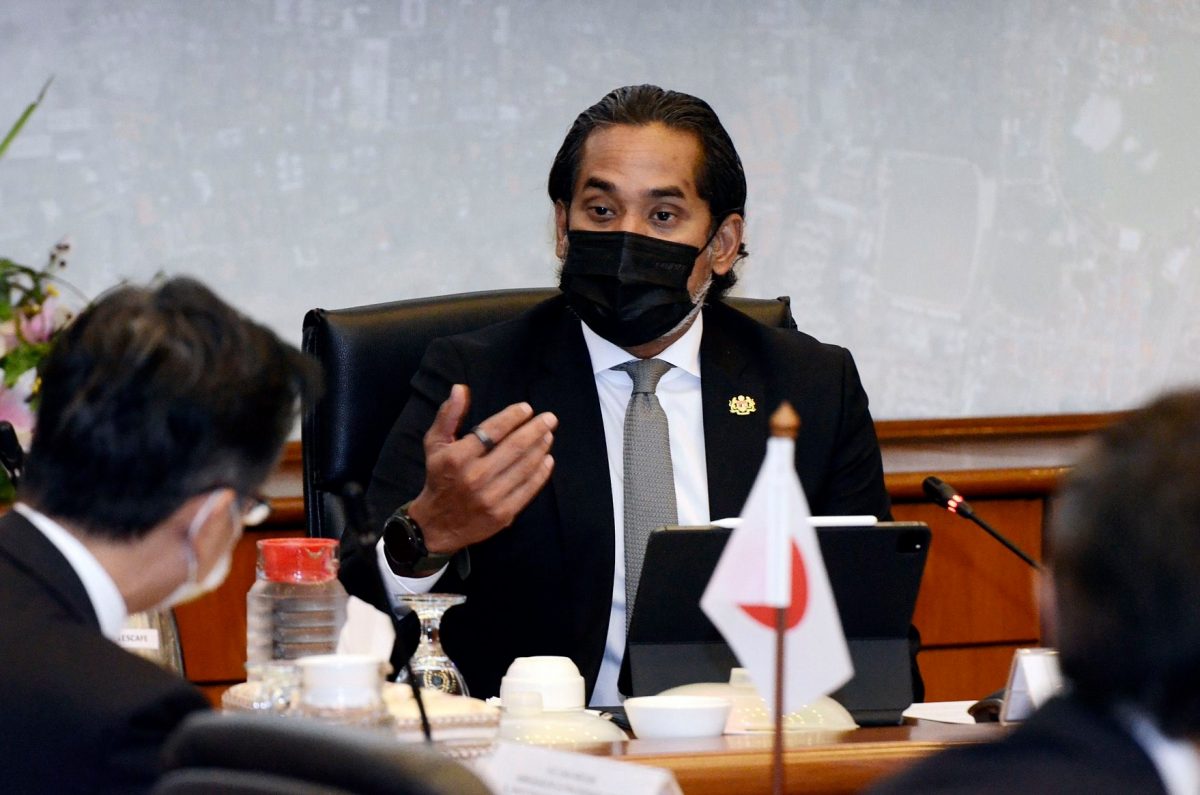KUALA LUMPUR, Feb 2 — Malaysia’s Covid-19 vaccine rollout is expected to proceed according to plan this month, Khairy Jamaluddin said today, amid fears of delays from the European Union’s (EU) new vaccine export controls.
The science, technology and innovation minister said he met EU Ambassador to Malaysia Michalis Rokas and Belgium Ambassador to Malaysia Pascal H. Gregoire earlier today to clarify the status of the delivery of Covid-19 vaccines manufactured in the EU to Malaysia.
“With regards to the Pfizer vaccine that is manufactured in Puurs, Belgium, the Belgian Ambassador has given his assurances that our Advanced Purchase Agreement with Pfizer will be fulfilled upon Pfizer applying for export authorisation and the vaccines will be delivered on schedule beginning this month,” Khairy said in a statement.
“The government of Malaysia has therefore asked that Pfizer request for immediate export approval from the government of Belgium. For the record, the first shipment of one million doses (coverage for 500,000) of the Pfizer vaccine will be used in Phase One of inoculation for frontliners and will be delivered in stages over the first quarter of this year.
“With the assurances of both the EU and Belgian Ambassadors, the Covid-19 immunisation plan is expected to proceed according to plan.”
CodeBlue broke the news yesterday about Malaysia being left off a list of more than 120 countries exempted from the EU’s vaccine export controls scheduled to last until March 31, amid supply problems in the EU.
The export authorisation regime requires vaccine developers to seek permission from the EU country where the vaccine is manufactured before supplying doses outside the bloc. The EU country, upon receiving an application for export authorisation, must seek the European Commission’s agreement to export vaccines; such applications can be rejected if they believe that the exports threaten the EU’s vaccine supplies.
The export restrictions cover, among others, Pfizer-BioNTech and AstraZeneca vaccines, both of which Malaysia has purchased. The EU’s vaccine export controls exempt poor and middle income countries; they target mostly developed economies, including Australia, Canada, and Japan. Malaysia is considered an upper middle income country.
EU Ambassador to Malaysia Rokas, in a statement today, simply said that all vaccines purchased from the global COVAX scheme are exempt from the EU’s export restrictions, “including those purchased by self-financing participants such as Malaysia”.
“Only vaccines purchased outside the COVAX scheme from producers in the European Union for delivery before the end of March 2021 require an export authorisation,” he said.
“In particular, exports to third countries, including Malaysia, under existing Advance Purchase Agreements (APAs) will be safeguarded to the largest extent feasible. The EU is mindful of Advanced Purchase Authorisations contracted by Malaysia, and will endeavour to ensure that Malaysia’s expectations to obtain its deliveries will be met.”
The EU ambassador’s statement means that delivery of Pfizer-BioNTech doses — which Malaysia purchased through direct negotiations with the vaccine developer outside the COVAX scheme — must still be approved by the European Commission, and not just by the Belgian government.
Australia and Japan expect delays to their Covid-19 inoculation campaigns due to the EU’s export restrictions. Canada did not get a written guarantee that its vaccine shipments would not be delayed, only verbal assurances from EU officials.








